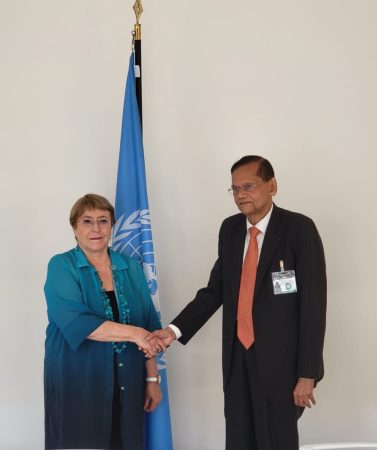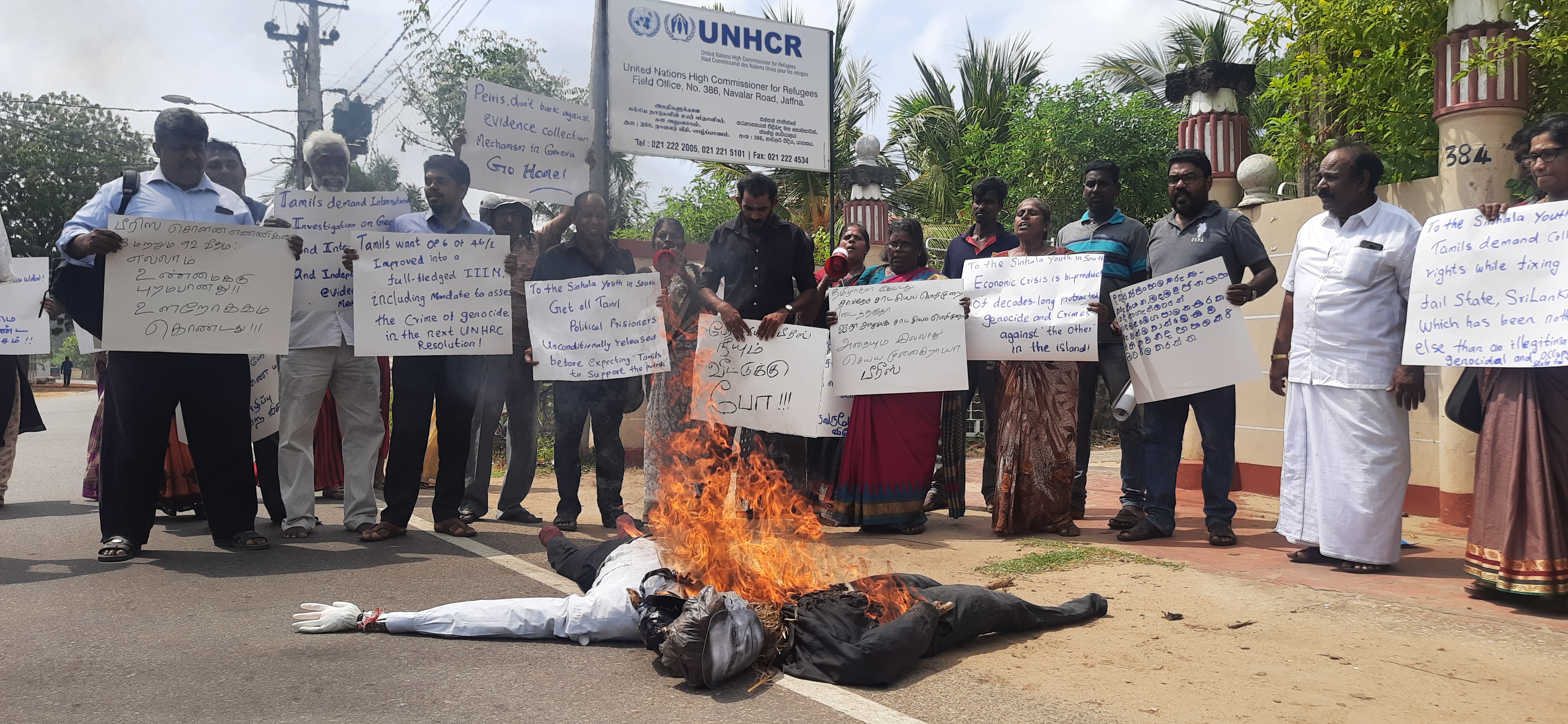
On Sunday, UN High Commissioner for Human Rights, Michelle Bachelet, met with Sri Lanka’s Foreign Affairs minister, Professor G.L. Peiris, whilst Tamil families of the disappeared and civil society actors burned effigies of the minister and called on the UN for international justice.
The minister is "providing totally false information on all accounts" in an attempt to "abolish the external evidence-gathering mechanism" that was introduced in UN resolution 46/1, warned the demonstrators who gathered outside the UNHCR office in Jaffna. The statement is made in reference to minister Peiris’s claim at the UN Human Rights Council last week that Sri Lanka had made “significant progress in some key areas”.
Read more here: ‘Liar Professor Peiris’ - Families of disappeared burn effigy of Sri Lankan foreign minister

His remarks came however just days after the Sri Lankan military attempted more land grabs, Sri Lankan security officers harassed a Tamil journalist, a prominent disappearances campaigner and activist spoke out against the OMP, and as military-sponsored Sinhalisation of the North-East continued.
During his statement he further attacked UN resolution 46/1, which mandated the collection of evidence of mass atrocities committed by the Sri Lankan state, claiming:
“We reiterate our conviction that this mechanism will only serve to polarize and divide, and will be an unproductive and unhelpful drain on the resources of this Council and its Members”.
Meeting with Bachelet, Peiris asserted that progress had been made through local mechanisms “including the Office of Missing Persons, the Office for Reparations, the Office for National Unity and Reconciliation, the SDG Council as well as independent institutions such as the Human Rights Commission of Sri Lanka”.
However, the effectiveness of these institutions and independence has been undermined by successive administrations. In August 2021, Human Rights Watch slammed the Rajapaksa administration for its political appointments to the Office of Missing Persons which included the controversial Jayantha Wickramaratne, a former policeman accused of destroying evidence in the murder of journalist Lasantha Wickrematunge, and Upali Abeyrathne, who led last year’s commission seeking to exonerate alleged perpetrators.
People for Equality and Relief in Lanka (PEARL) has stressed that “expecting accountability from any state-led mechanism is futile” and instead emphasised the need for international accountability.
“Unless the root causes of conflict and grievances are addressed through accountability and a long-term political solution, the situation in Sri Lanka risks spiraling further into gross human rights violations, and potentially mass violence”.
Similarly, demonstrators have explained Sri Lanka’s current economic crisis as a failure to tackle issues of accountability.
"The Tamil people in the North-East regard the current economic crisis also as a long-accumulated result and consequence of the unresolved ethnic conflict and Sri Lanka’s failure to address impunity for international crimes," the groups wrote in their letter.
Read more here.
We need your support
Sri Lanka is one of the most dangerous places in the world to be a journalist. Tamil journalists are particularly at threat, with at least 41 media workers known to have been killed by the Sri Lankan state or its paramilitaries during and after the armed conflict.
Despite the risks, our team on the ground remain committed to providing detailed and accurate reporting of developments in the Tamil homeland, across the island and around the world, as well as providing expert analysis and insight from the Tamil point of view
We need your support in keeping our journalism going. Support our work today.
For more ways to donate visit https://donate.tamilguardian.com.

